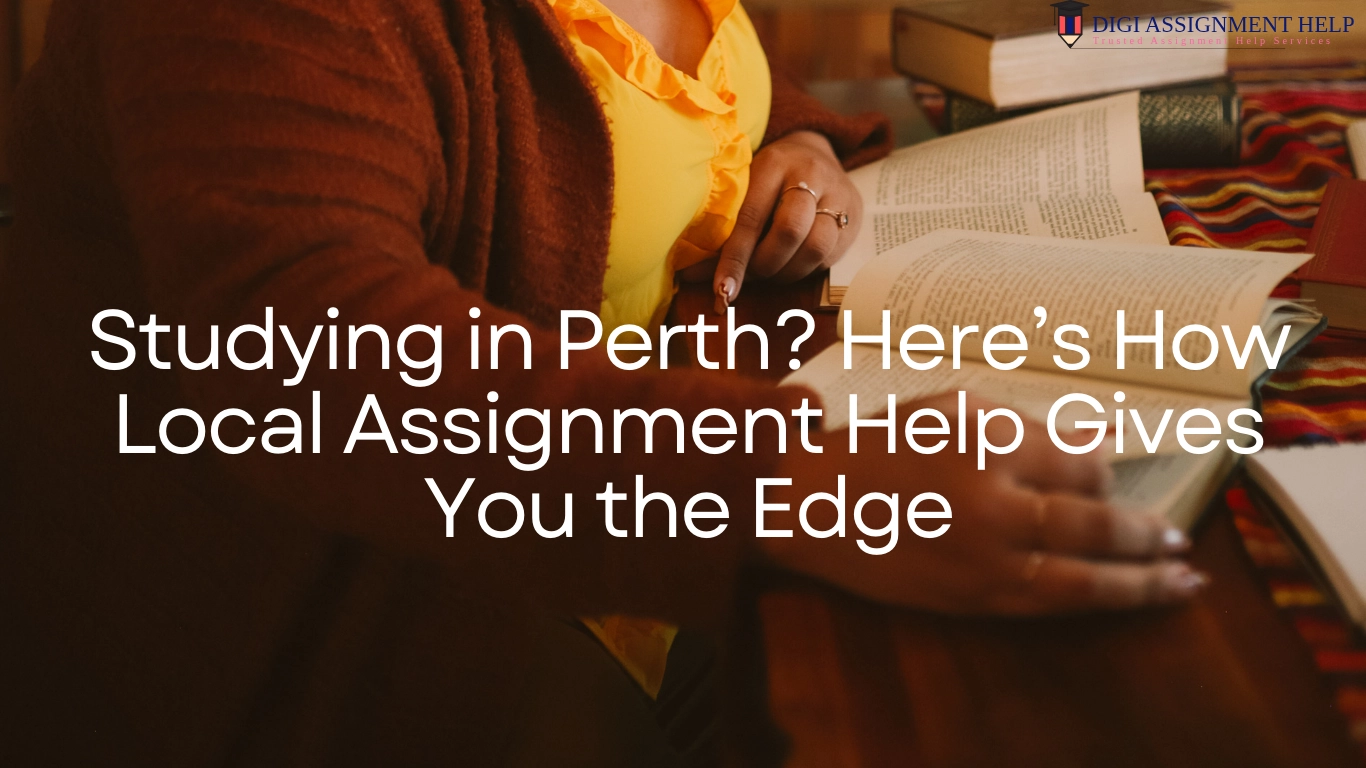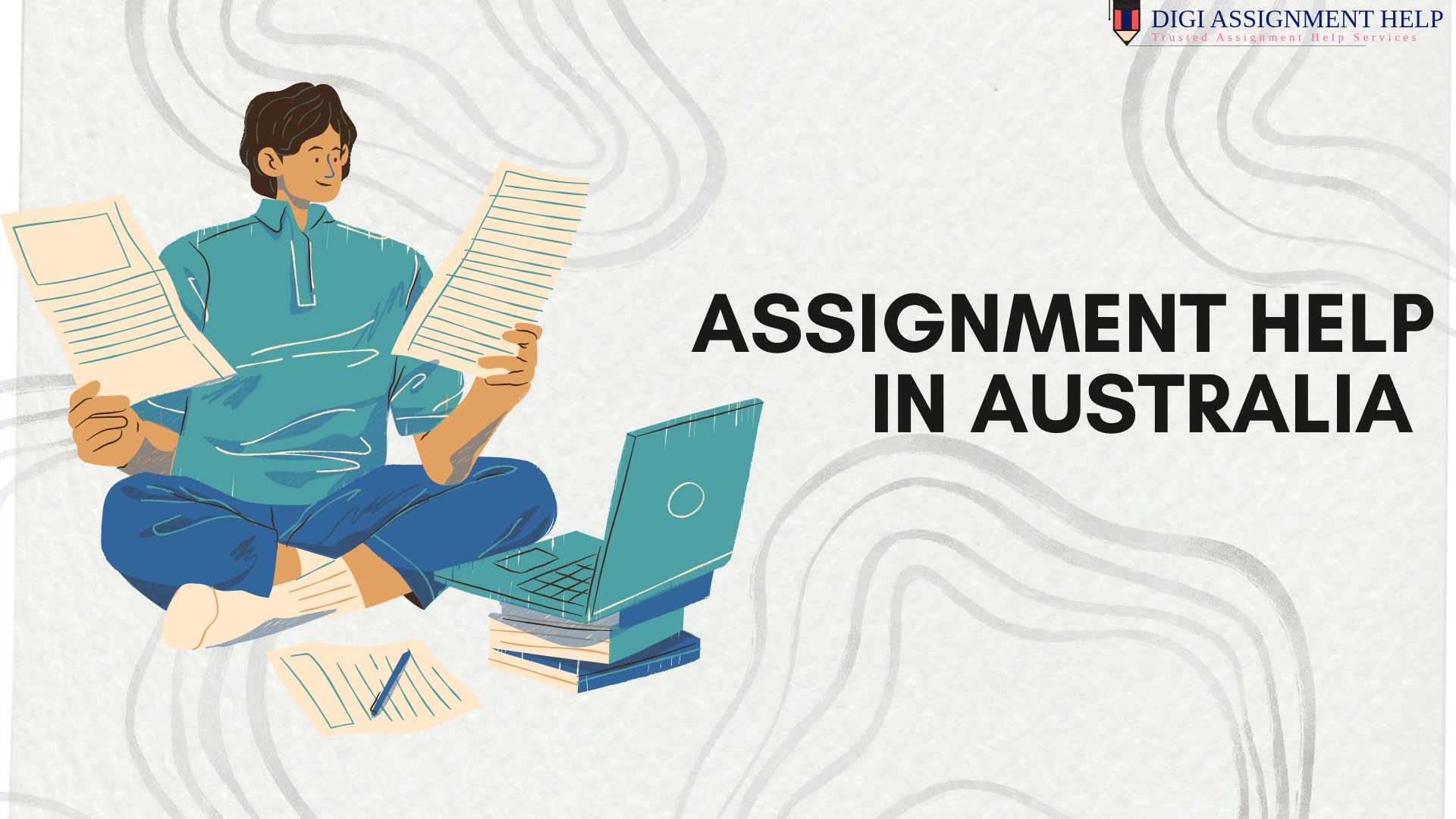A Complete Guide to Cookery Courses in Australia
 12-Jun-2024 08:10 AM
12-Jun-2024 08:10 AM
Australia is well known for its vibrant and diverse culinary arts, which reflects a rich history of cultural influence and their passion for quality products.
Are you a student hoping to achieve valuable skills which may apply to different professional settings, like food preparation, service and nutrition?
We offer an enormous library of cookery courses suitable for all stages and interests
This comprehensive guide will indulge in different cookery courses available all across Australia and will highlight key providers, course structures, and steps to search for reliable cookery assignment help.
The Main Benefits of Australian Cookery Courses
-
World-Class Education: Australia boasts some of the world's leading culinary schools and TAFE (Technical and Further Education institutes), providing top-tier education and training.
-
Industry Connections: Many courses include internships and work placements, offering invaluable industry experience and networking opportunities.
-
Cultural Diversity: Australia's multicultural environment exposes students to a wide range of cuisines and cooking techniques.
-
Modern Facilities: State-of-the-art kitchens and training facilities enhance the learning experience.
-
Career Opportunities: Graduates are well-prepared to pursue careers in top restaurants, hotels, and catering companies globally.
The different types of Cookery Courses Available Are
Certificate III in Commercial Cookery
The Certificate III in Commercial Cookery is considered one of the most popular entry-level qualifications and provides solid foundations in different cooking techniques, kitchen operations, and food safety procedures.
This course typically includes practical pieces of training and assessments to make sure that students can gain hands-on experience.
The Main Topics Covered are:
-
Knife skills
-
Basic fundamental cooking techniques (grilling, frying, roasting)
-
Food safety and hygiene procedures
-
Menu planning strategies
-
Basics to Nutrition
Certificate IV in Commercial Cookery
Certificate IV in Commercial Cookery dives deeper into advanced cooking and kitchen management techniques.
This qualification is important to those looking to take on supervisory roles or want to manage their own cookery business.
The Main Topics Covered are:
-
Advanced cooking techniques
-
Kitchen management strategies
-
Staff supervision
-
Cost control and budgeting without dropping quality
-
Menu development strategies
Diploma for Hospitality Management (Cookery)
The Diploma for Hospitality Management focuses on cookery and is designed for students aiming for leadership roles in the hospitality industry.
This comprehensive course covers advanced culinary skills, hospitality management, and business operations.
The Main Topics Covered are:
• Advanced culinary techniques
• Hospitality laws and regulations
• Human resource management procedures
• Financial management strategies
• Marketing and sales procedures in hospitality
Short Courses and Workshops
For those looking for shorter commitments, Australia offers numerous short courses and workshops. These courses range from single-day classes to several weeks and focus on specific cuisines, techniques, or different dietary requirements.
Popular Short Courses include:
• Pastry-making and baking techniques
• Asian cuisine preparations
• Vegan and vegetarian cooking
• Wine and food pairing techniques
• Artisan bread-making techniques
Top Institutes Offering Cookery Courses
TAFE (Technical and Further Education) Institutes
TAFE institutes are one of the most reliable providers of cookery courses in Australia.
They offer a wide range of nationally recognized qualifications, from well-recognised certificates to advanced diplomas.
Notable TAFEs:
-
TAFE NSW: They are known for their comprehensive programs and excellent facilities.
-
TAFE Queensland: They offer a diverse range of cookery courses with strong industry links.
-
Box Hill Institute (Victoria): They are renowned for their culinary arts program and industrial partnerships.
Le Cordon Bleu Australia
Le Cordon Bleu is a highly prestigious culinary school with campuses in Sydney, Melbourne, Adelaide, and Brisbane.
They offer a wide range of programs from diplomas to bachelor's degrees, which combine classical French techniques with modern twists.
William Angliss Institute
Located in Melbourne, the William Angliss Institute is a specialised centre for food, tourism, hospitality, and other various events.
Its cookery courses are highly regarded, and the institute provides excellent industry training and support.
Searching for Cookery Assignment Help
Taking cookery courses can be challenging, and students often will require additional support to excel in their studies. Searching for cookery assignment help can be beneficial, especially for complicated topics or tight deadlines.
Tips for Getting Proper Cookery Assignment Help
-
Online Tutoring Services: Numerous online platforms offer tutoring services for cookery students, and provide expert guidance and personalized assistance.
-
Peer Study Groups: Joining study groups with fellow students can also enhance learning through collaborative efforts and shared resources.
-
Academic Support Centers: Many institutions have support centres which offer help with assignments, research, and study techniques.
-
Professional Chefs and Mentors: Engaging with industry professionals for mentorship can also provide practical insights and useful advice.
Career Paths and Opportunities
After graduating from an Australian cookery program, many career avenues open up in the culinary and hospitality industries.Skills and competencies gained from these programs are highly sought after globally.
Roles Found in the Culinary World:
Chef Roles
-
Commis Chef: The commis chef is usually a starting point for young chefs. They work with other experienced chefs to learn new areas of the kitchen.
-
Sous Chef: In a kitchen, the sous chef is second in command, taking charge when the head chef is away.
-
Head Chef (Executive Chef): This position manages all aspects of the kitchen including staff, menu development, and inventory control. Head chefs typically have years of experience and formal culinary education post-high school.
Special Chef Jobs
-
A maker of pastries: They specialize in baking and pastries, including desserts, breads and other baked goods. In this position, creativity and precision are key factors.
-
Creators of sauces: The saucier focus on making the sauces, soups and stocks which are an essential part of French cuisine as well as high-end restaurants.
-
Managers of cold foodstuffs: They specialized in cold foods like salads, pâtés and cold appetizers. This role often also includes managing the kitchen’s cold storage areas.
Alternative Culinary Occupations
-
Art Director: Food stylists usually work in the media industry where they prepare food for print, screen or video production. It entails keen attention to detail and beauty in most cases.
-
Teacher of Cooking Lessons: Aged chefs move from their initial careers to teaching so that they can pass on their knowledge and skills to the next generation of culinary professionals.
-
Catering Manager: They coordinate catering services by supervising event food preparation and presentation alongside overseeing both culinary and business aspects involved with catering services themselves.
-
Food Writer/Food Critic: These people interpret culinary know-how in writing such as reviewing eateries, cooking books or even composing food-related content designed for publications as well as blogs etc.
-
Restaurant Manager/Owner: To create unforgettable dining experiences, many chefs who plan to open their restaurants combine their culinary expertise with their business skills.
Comprehending the Course Structure
Internship
The Australian cooking courses are characterized by practical training. Students have to spend significant time in commercial kitchens where they improve their abilities under direction of the experienced chefs.
The objective is to create a practical situation for students which mimics the real kitchen space that prepares them for the stresses and requirements related to professional cooking.
Theoretical Background
There is also a theoretical aspect incorporated into culinary classes. Some of these include:
-
Food Science: This involves understanding ingredients’ physical and chemical characteristics during cooking.
-
Nutrition: Here, one learns about the nutritive value of various foods and how to prepare balanced, healthy meals.
-
Food Safety and Hygiene: Valuable information about keeping kitchens clean and safe.
-
Culinary History and Trends: Studying the past of culinary arts and learning about current patterns defining its development.
Criterion based assessment:
The evaluation methods in cookery courses are diverse and can assess both practical and theoretical knowledge. Common ways of evaluating include the following:
-
Practical Exams: Students are required to prepare dishes and present them to a panel of judges that will evaluate how well they have utilized their cooking skills as well as creativity.
-
Written Assignments: This type of assessment includes essays, research papers, and case studies related to various topics in culinary arts and sciences.
-
Projects: Group or individual projects may require menu planning, event coordination, or creating new recipes for example.
-
Oral Presentations: They may be about research findings or concepts related to food prepared for presentation before classmates and instructors.
Scholarship & Grants
There are some scholarships available that are based on merit, financial need as well as other criteria including leadership ability or community participation offered by different institutions. Some of the known scholarships geared towards students taking culinary courses include:
-
Le Cordon Bleu Scholarships: Provide economic assistance for exceptional scholars joining their systems.
-
William Angliss Institute Scholarships: Providing support for both domestic and international students based on academic performance and financial need.
-
TAFE Scholarships: Various TAFE institutes offer scholarships for students demonstrating academic excellence or financial hardship.
Tips for Success in Cookery Courses
-
Stay Organized: Maintain records of assignment schedules, due dates, and practical assessments. Establish a timetable so that you can plan your times well to avoid congested days.
-
Practice Regularly: As you go on mastering and sharpening your cooking skills, the more you are likely to gain confidence and be more effective.
-
Seek Feedback: In order not to miss something important, do not hesitate to seek help from instructors and peers. Constructive criticism, as the name suggests, is a very important kind of criticism.
-
Network: Develop interpersonal interactions with fellow students, faculty members, and practitioners in the field. There are numerous benefits of networking such as it can provide you with job offers and partnerships.
-
Stay Updated: Stay abreast of new and upcoming trends in cuisines, read food-related magazines and ensure that you are always learning new things.



























